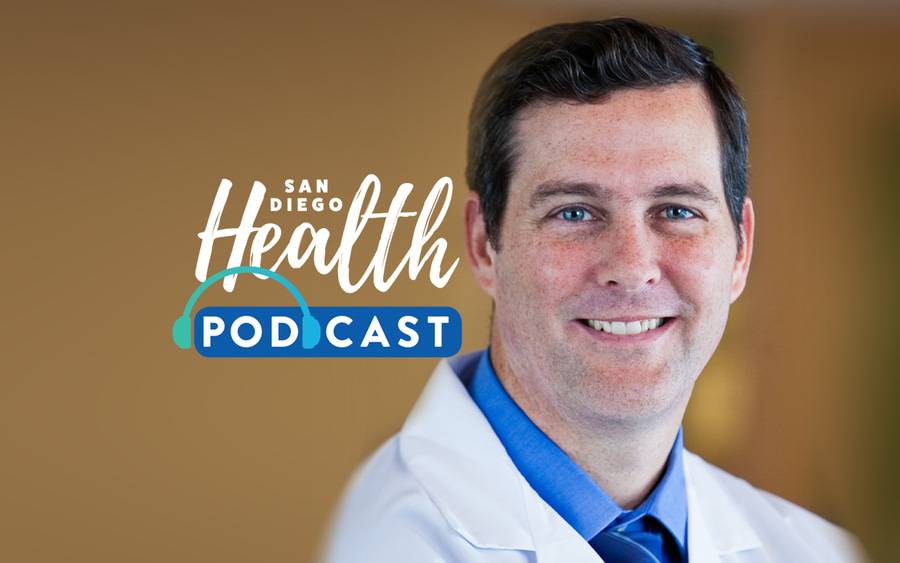Is Hearing Loss Reversible? (podcast)
Hearing loss can be improved with proper treatment

Thomas Alexander, MD, Otolaryngology, Scripps Clinic
Hearing loss can be improved with proper treatment
According to the Centers for Disease Control and Prevention, about 40 million adults in the US suffer from some type of hearing loss.
It’s natural to lose some of our high-frequency hearing as we age, and exposure to loud noises, physical blockages, and nerve or brain problems can contribute as well.
Having a hard time hearing conversations amid background noise is usually the first indicator that’s there’s a problem.
In this episode of San Diego Health, host Susan Taylor and Thomas Alexander, MD, a neurotologist and ear surgeon at Scripps Clinic Torrey Pines, discuss the causes of hearing loss, how to keep it from getting worse, and treatment options for once the damage is done. Dr. Alexander also outlines how hearing aids and cochlear implants work to restore hearing.
Listen to the episode on causes and treatments for hearing loss
Listen to the episode on causes and treatments for hearing loss
Podcast highlights
Lightly edited for clarity
Watch the video on what causes hearing loss?
Watch the San Diego Health video with host Susan Taylor and Dr. Alexander discussing the causes and treatments for hearing loss.